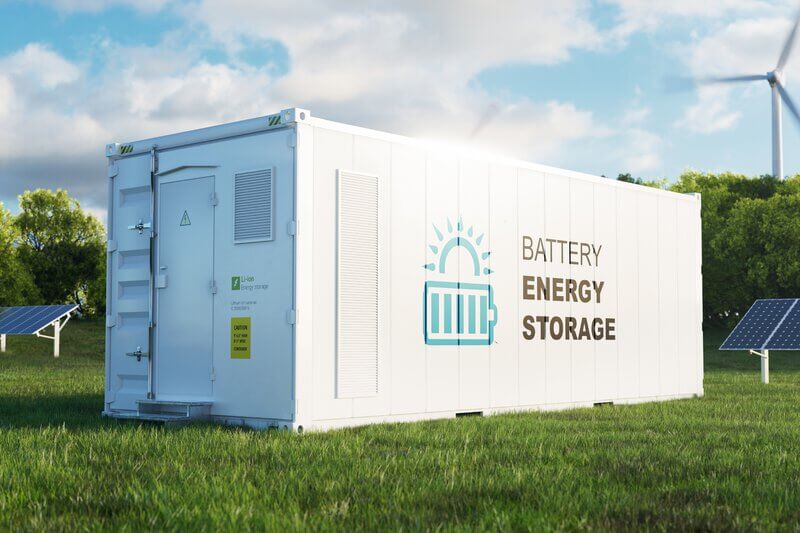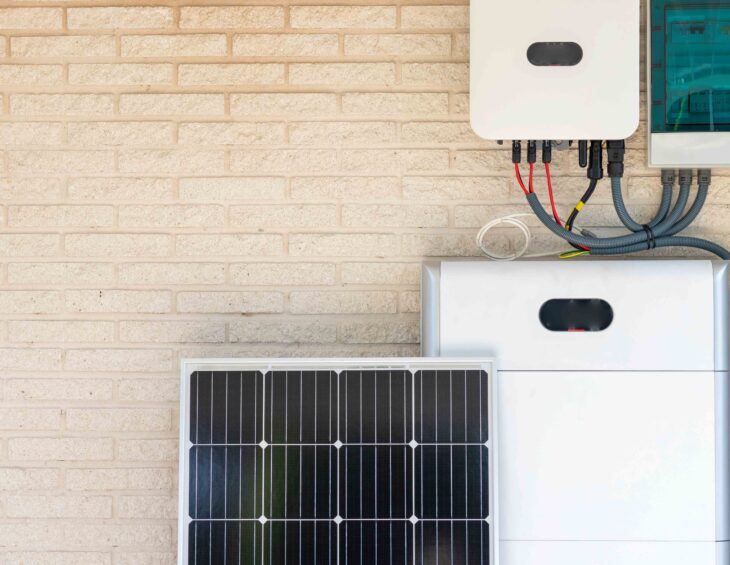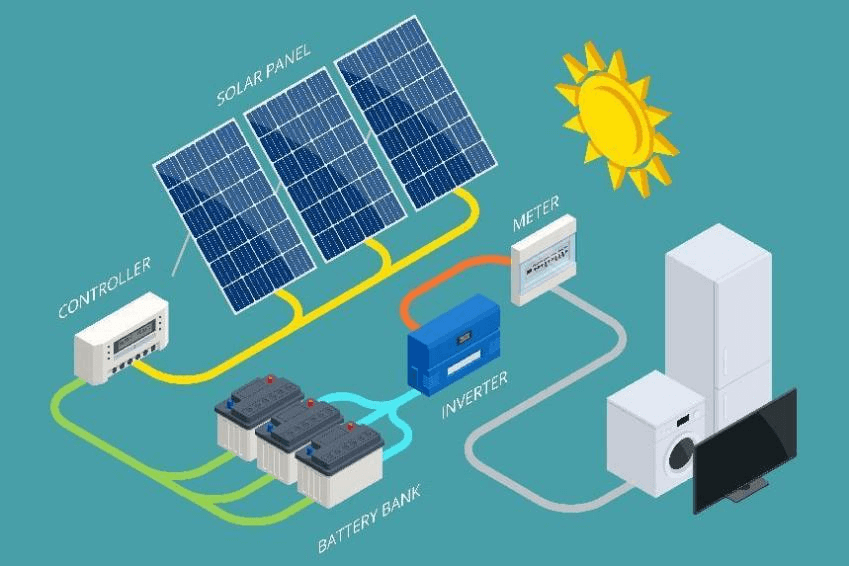Everything from upfront costs to long-term benefits are discussed in this article to help you decide if a solar battery is right for your home.
For good reason, the energy sector is talking a lot about solar battery storage technologies. The power industry sees this as the wave of the future.
Many people are looking to solar storage and other renewable energy alternatives to reduce their reliance on the utility grid as electricity prices continue to rise. But should we invest in solar-powered batteries anyway? Check RenonPower investigate.
Now, let's talk about the benefits of solar battery storage for your house. During the day, when the sun is shining brilliantly, solar panels generate electricity. Energy produced by solar panels can occasionally exceed requirements. There is no way to store this energy for later use without a battery backup. The surplus power is instead returned to the power grid. However, if you install a solar battery, you can use the backup's surplus energy at night or while the power is out if the grid.
A solar battery can make your home more secure against blackouts, less reliant on the grid, and more capable of saving money by not using energy at peak times.
Is a solar battery really the best option, though? Where you live, the reliability of the local grid, and the value you place on a constant supply of electricity for your home are all factors. Some of the most common justifications for installing solar batteries at home are listed below.

Having control of your home's energy supply is a wonderful feeling. Your home is still susceptible to grid disruptions and energy price variations throughout the day, even having solar panels installed. But if you add a solar panel battery to your setup, you'll have flexibility.
And with Renonpower's smart technology built into its battery backups, you'll be able to keep tabs on how much energy any appliance in your home is using at any one time. Who wouldn't want better power management at home?
Across the country, the cost of electricity is rising. They have, in fact, been on the rise for the past decade. The worst aspect is that most of the causes are beyond our control, such as disruptions in the supply chain, political unrest in other countries, and natural disasters.
Furthermore, your utility company may charge you differently at different times of the day. Time-of-use (TOU) pricing may be lurking in the fine print of your bill. With time-of-use pricing, you may end up paying more for electricity right when you need it the most.
Because of all these considerations, consumers are powerless to influence the electricity rates charged by their utility providers.
You can schedule your energy use with the help of a solar panel battery. And it might keep your home safe from rising electricity rates and serve as a backup in case of blackouts.
We can't deny that power outages are scary, and they're on the rise. Depending on the specifics of your area, solar batteries can be an excellent choice for providing backup power during blackouts at home.
A little loss of power is annoying, but catastrophic outages can linger for several days. The likelihood of power disruptions lasting multiple days is rising as more severe weather events hit the United States annually.
Many folks can't bear the thought of spending another night in a dark house. You might get lucky and have a neighbor with a loud generator, or you could rely on the electricity stored in your solar battery in case the grid goes out.
Solar batteries are used to store energy produced by solar panels for use later, such as during a blackout, at night, or on a cloudy day. The final price depends on a number of variables, including the brand, battery model, energy storage capacity, and installation fees. Popular solar batteries can be purchased for between $9,000 and $23,000.
However, the final price will depend not only on the storage space, but also on the quality of the materials chosen, the cost of installation, and, of course, whether or not solar panels will also need to be installed on the roof.
However, these days, most jurisdictions provide financial incentives for households and commercial properties to install solar batteries and storage systems. The upfront investment in the battery system may be reduced by these rebates. Visit the official website of your state or territory to learn more about any solar storage incentives or interest-free loans that may be available to you.
Note that almost all solar businesses will ask for a quote before they can offer you an estimate of the cost. However, before settling on a solar installer, it could be useful to compare many bids from different businesses.

A high-quality solar battery can function reliably for anything from five to fifteen years before it has to be replaced. This is quantified in terms of the number of "cycles," where each cycle represents one complete charge and discharge of the battery's stored energy. One day is considered to be one cycle when calculating a person's age in years. The longer a battery is guaranteed to last, in theory, the more cycles it can withstand.
Depending on the size of your solar power system, a home battery system can reduce your annual energy costs by $700 to $1,100. The going rate for a solar battery of average size is roughly $10,000. With the solar tax credit, you can reduce that to the low seven figures. This means that it will take you between six and ten years to recoup the cost of your solar battery system through energy savings.
In addition to the 30% federal tax credit, you may be eligible for additional rebates and incentives from your state or municipality, such as a stronger net metering program that could shorten the time it takes to recoup the cost of your system to as little as five years. To learn more about local electricity rates and rebates, contact your utility and government.

To get the most out of your solar battery and the money it can save you, you should modify your energy habits to match those of your battery and panels. Changing to a restricted load or time of use power tariff could be an option to consider.
Electricity is typically at its lowest during regular business hours and extremely late at night due to time of use and other flexible rate tariffs, which charge various rates at different times. Typically, the cost of electricity increases between 4 and 8 o'clock in the evening, when demand is at its highest. As a result, customers on this tariff structure may be able to save money by depending on their own solar power during peak hours rather than the grid and its more expensive rates. Some solar storage systems are app-compatible, allowing you to monitor and control when or how your stored solar power is used, and most solar storage devices may be set to automatically activate during these hours.
With a regulated load tariff, your solar battery savings can increase because your home appliances will only need power throughout the late evening and early morning. Customers can charge their solar batteries overnight using cheaper grid electricity by connecting them to a controlled load. If they charge their battery overnight, they can use it the next day without having to pay full electricity rates.
However, this does not mean that clients on a single rate tariff cannot benefit from a solar battery. In order to get the most out of their solar battery, these users can't take advantage of fluctuating electricity pricing. One option is to reduce their grid use to such a minimal amount that they no longer require the more affordable electricity provided by the grid. Another option is to participate in a Virtual Power Plant (VPP) network in order to earn credits for selling excess solar power generated during periods of high demand.
Ultimately, optimizing the utilization of your solar battery will depend on the specific circumstances of your home or business.

Whether or not installing a solar battery is worthwhile depends on how much energy you consume on a daily basis. Consumers could gain a lot by installing an energy storage system in their home, but it's safe to assume that they'll get the greatest bang for their buck if they invest the same amount that they want to save.
The return on your (very expensive) investment in a solar battery may be less than satisfactory if you simply install one without making any adjustments to your usage habits to match the cycles of your system. Against the typical grid limits, such as higher demand in the nights or more expensive power pricing during peak periods, a solar battery excels as a residential energy storage solution. The advantages of solar storage may not be as clear if you are unable or unwilling to make the most of your battery in order to meet these energy demands.
If you use a lot of power from the grid, that could affect how important solar storage is to you. Solar storage is a great option if you want to reduce your reliance on the power grid by moving as much of your energy consumption as possible off the grid. Whether your goal is to cut down on your utility costs or your carbon footprint, a storage unit can help you lay the groundwork for energy independence, provided, of course, that you can afford the initial investment in solar batteries.
Whether you've already made up your mind to have a solar battery installed today or are still considering your options, it's always smart to consult a trained expert first. A solar installation or solar storage expert can help you evaluate your alternatives in light of your home size, energy use history, and geographic location. A solar battery is an investment, therefore you shouldn't rush into buying one.
It may be worthwhile to invest in solar batteries for your home if doing so would result in lower electric bills, redundancy in the event of a power loss, and greater control over your energy consumption.
However, the specifics will vary depending on the size of your household, the size of your budget, and the objectives you have for your solar energy setup. It's not as difficult as it may seem to arrive at the correct decision. Get a free solar battery price and expert guidance from one of our Solar Energy Specialists.

扫码关注
We use cookies to understand how our audience uses our site.
Renon Power websites use cookies to deliver and improve the website experience. See our cookie policy for further details on how we use cookies. Privacy Policy